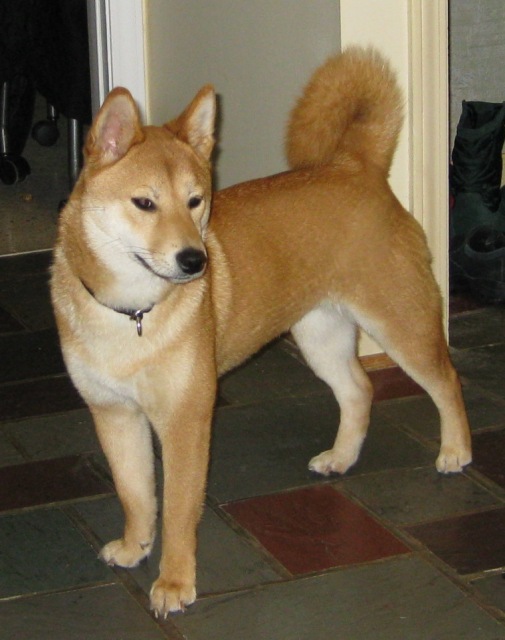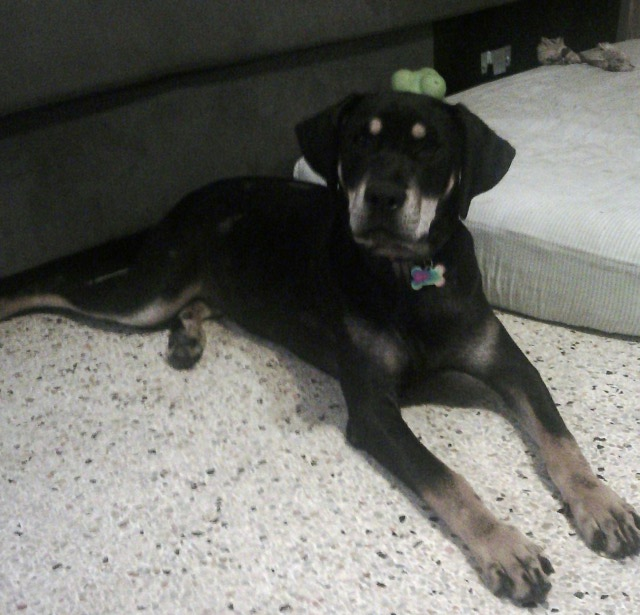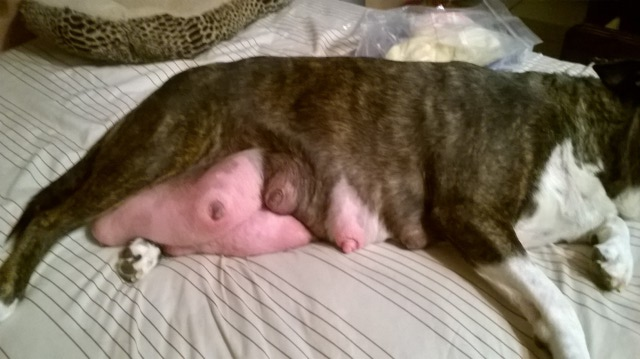QuestionSir i have a 4 months old German Shepherd female. I feed her a lot but her growth is not like other German shepherds. She looks like 2 months puppy. what can i do for her height and growth and i want her to be a vegetarian so what diet will be best for her. Even i am giving her Pedigree Professional range.
AnswerI understand why you want your dog to be a vegetarian, but dogs are not horses (or people) and were not designed to eat a diet of nothing but grains and vegetables. It is not healthy for them as they are carnivores that were put here on earth to keep rodents and other small animals from over-running the world.
First, have your puppy checked over by a veterinarian to make sure that she doesn't have a health issue, such as a liver shunt, which might be stunting her growth. Next, you need to change her dog food to something more nutritious. Due to a puppy's normal rapid growth, it needs to be on something with higher protein and fat levels than it will require when it is an adult, and at some point, a puppy will most likely be eating twice as much food as it will once it is done growing. I usually start cutting back on the food as a puppy enters adolescence at around 6-8 months, depending on the dog and its physical condition at that time.
The first ingredient of a good dog food must be a specified meat MEAL (ie. chicken MEAL, lamb MEAL... meaning all water has been removed from the meat). If it is just chicken/beef/lamb, etc., that ingredient contains 70% water; when that water is removed during processing, that ingredient will then fall lower on the ingredient list, often then making the first ingredient a grain since ingredients are measured by raw weight, not processed weight. The primary ingredient of any dog food should be a meat protein, not grain.
I would prefer to only have one grain in the food, but two is okay. I don't want more than two grains, if possible. Corn is a good source of Omega fatty acids, and my dogs do well on it (although I don't feed it to old dogs with arthritic issues.); it gives great shiny coats. I like the idea of multiple protein sources.
There should be NO by-products, dyes, ethoxyquin, menadione sodium bisulfate (source of vitamin K) in the food, and I would prefer if there was no added salt. I like having enzymes and probiotics (yogurt-like micro-organisms) in the food, and I think kelp helps keep red out of black coats, which my dogs have.
Good luck with your puppy.

 Rescued Shiba with ISSUES
Question
Shredder
Kristin,
I consider myself an experie
Rescued Shiba with ISSUES
Question
Shredder
Kristin,
I consider myself an experie
 Puppy wont come!
QuestionCapone & Rascal
QUESTION: Help! &nbs
Puppy wont come!
QuestionCapone & Rascal
QUESTION: Help! &nbs
 weird hair loss on my curr mix
Question
cuddles
ive seen other questions about
weird hair loss on my curr mix
Question
cuddles
ive seen other questions about
 Training....
Question
Me with brady
My dog Brady is a year old, he i
Training....
Question
Me with brady
My dog Brady is a year old, he i
 Engorged Breasts
Question
mamma
My Friends Dog Had A Litter About
Engorged Breasts
Question
mamma
My Friends Dog Had A Litter About